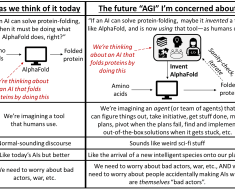
Within the domain of Natural Language Processing (NLP), Large Language Models (LLMs) represent sophisticated models engineered to comprehend, generate, and manipulate text resembling human language on an extensive scale. They are transformer-based deep learning architectures, obtained through the scaling of model size, pretraining of corpora, and computational resources. The potential healthcare applications of these models primarily involve chatbots and interaction systems for clinical documentation management, and medical literature summarization (Biomedical NLP). The challenge in this field lies in the research for applications in diagnostic and clinical decision support, as well as patient triage. Therefore, LLMs can be used for multiple tasks within patient care, research, and education. Throughout 2023, there has been an escalation in the release of LLMs, some of which are applicable in the healthcare domain. This remarkable output is largely the effect of the customization of pre-trained models for applications like chatbots, virtual assistants, or any system requiring human-like conversational engagement. As healthcare professionals, we recognize the imperative to stay at the forefront of knowledge. However, keeping abreast of the rapid evolution of this technology is practically unattainable, and, above all, understanding its potential applications and limitations remains a subject of ongoing debate. Consequently, this article aims to provide a succinct overview of the recently released LLMs, emphasizing their potential use in the field of medicine. Perspectives for a more extensive range of safe and effective applications are also discussed. The upcoming evolutionary leap involves the transition from an AI-powered model primarily designed for answering medical questions to a more versatile and practical tool for healthcare providers such as generalist biomedical AI systems for multimodal-based calibrated decision-making processes. On the other hand, the development of more accurate virtual clinical partners could enhance patient engagement, offering personalized support, and improving chronic disease management.
Keywords:
Artificial Intelligence; ChatGPT; Chatbot; Clinical Decision Support; Generative AI; Large Language Models; Natural Language Processing.




